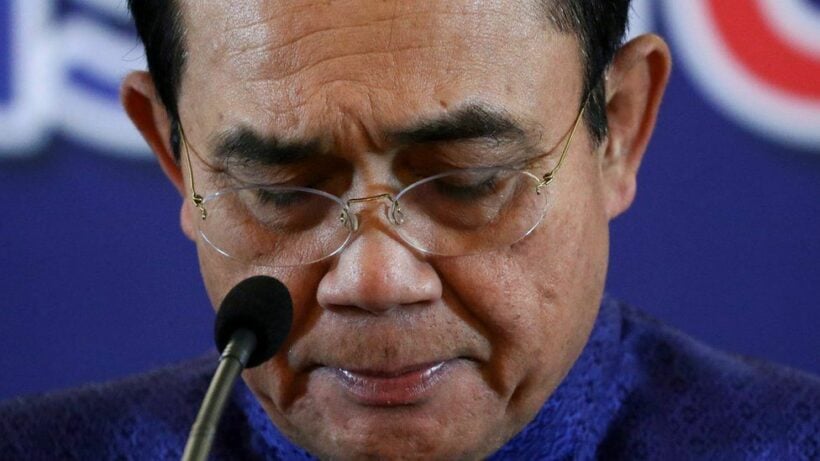Exit Prayut? Court rules today on PM’s future

The Constitutional Court will today rule on whether suspended Prime Minister Prayut Chan-ocha has exceeded an eight-year limit as premier.
General Prayut seized power in a 2014 coup and became prime minister soon after. The air has been filled with speculation and conspiracy theories since the court accepted the opposition’s petition on August 24 and suspended Gen Prayut as PM while the court considered whether he should have left office last month, a case filed by the opposition Pheu Thai party.
The question for the court to decide is if Gen Prayut’s eight years in charge should include his time as leader of the junta he installed after toppling the Pheu Thai government.
Some want the eight years to begin when the new constitution came into force in 2017 while some suggest 2019 when an election was held and the new Parliament chose him to head the government.
Unlike previous editions, the current Thai constclearly stipulates the term limits for the office of PM. Article 158 states…
The prime minister shall not hold office for more than eight years in total, whether or not consecutively. However, this shall not include the period during which the prime minister carries out duties after vacating the office.
But when to start counting? There are three possible points.
August 24, 2014, Gen Prayut assumes the premiership following the coup that he led in May that year. In this case, Gen Prayut will be out of office immediately.
April 6, 2017, The current Constitution comes into force. In this case, Gen Prayut can complete his current term in 2023 and serve two more years.
June 9, 2019, Gen Prayut assumes the premiership following a general election in March. Under the new Constitution, then he would be able to serve five more years in office if re-elected in 2023.
There is a strong case for counting his tenure from August 24, arguing that the constitution is intended to prevent a monopoly of power. What matters is the spirit of the Constitution. Opponents believe the eight-year limit cannot be retroactive and tenure should be counted from the time the charter came into force. This could keep Gen Prayut in power until April 2025, if his party wins the elections.

Only Prayut’s most fanatical supporters believe the tenure start in June 2019, when he was sworn in as prime minister under the new constitution. They believe he could serve until mid-2027.
Tenure is just one of many issues the opposition wants to resolve in their efforts to remove the retired general permanently from office. So far, they have tried four parliamentary motions of censure, a conflict of interest case over his residence, and months of street protests.
An election is due by May 7 next year at the latest, according to the election commission. Friday’s ruling will determine whether the 68 year old can run. Should the court decide Prayuth has passed the eight-year limit, parliament will elect a new premier from among the losing candidates in a 2019 House vote.
SOURCE: Bloomberg
Latest Thailand News
Follow The Thaiger on Google News:


























